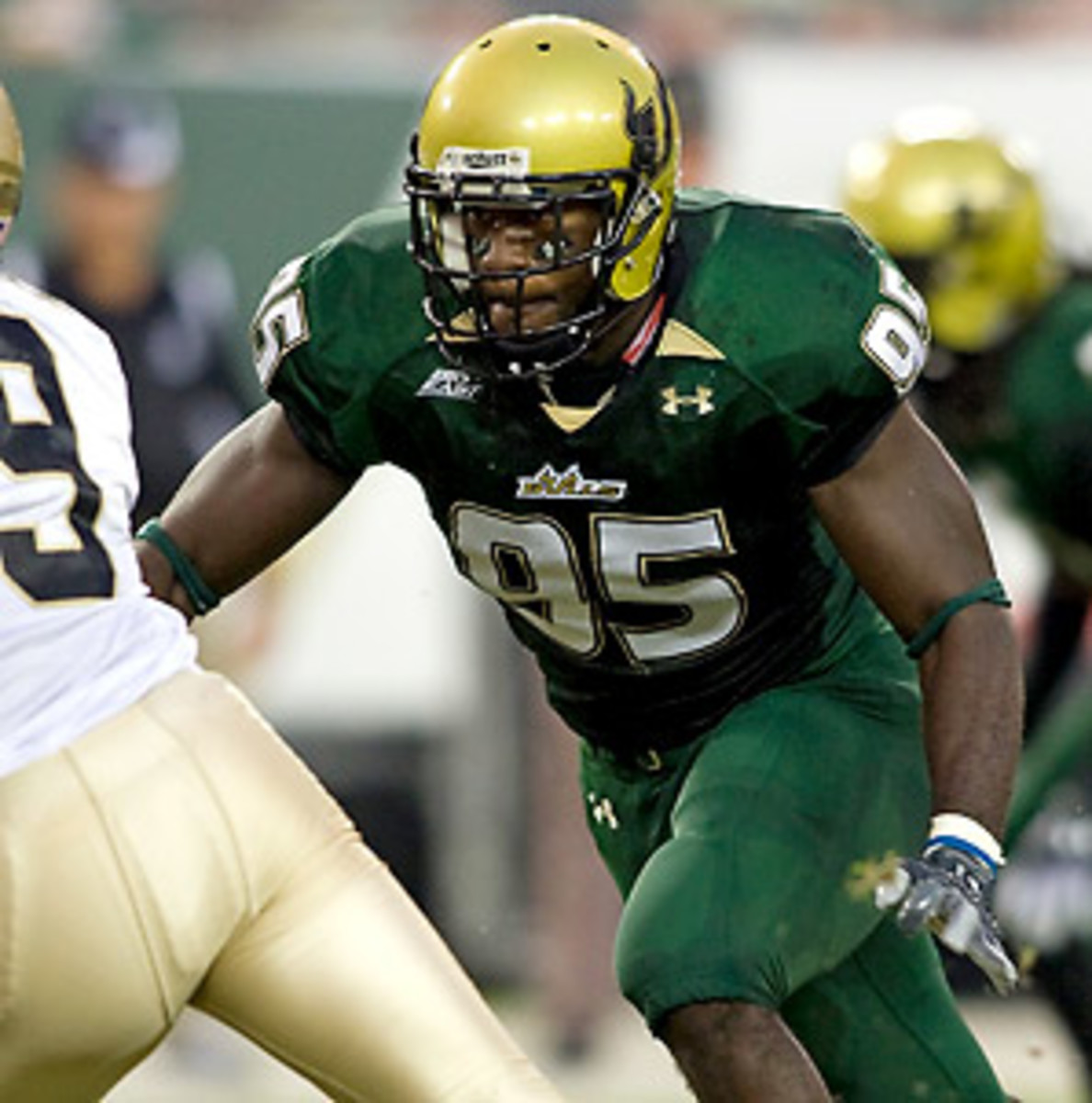South Florida can enter exclusive club with a win over FSU
Every spring, men in green and gold polos fan out across the state of Florida to recruit football players. At high school after high school, the gentlemen in green and gold run into men wearing garnet and gold, orange and blue and green and orange. For the past 12 years, the men in green and gold have had to live with one rock-solid certainty: If any of those other coaches wanted the same player, the green-and-gold guys could cross him off their list.
That could all change on Saturday.
If you don't live in Florida, you probably think Florida State's win at BYU last week was the Seminoles' most important game this season. In fact, it's not even Florida State's most important game this month. When South Florida comes to Doak Campbell Stadium on Saturday, FSU will be guarding the door to an exclusive college football club. The Bulls, meanwhile, will have a chance to knock down that door forever.
"To change history and do things like that, I think you have to win," USF coach Jim Leavitt said this week.
For years, Florida's Big Three (Florida, Florida State and Miami) have dominated recruiting in the nation's most talent-rich state. By the time USF started its program out of a trailer in 1997, the Big Three had all won national titles. In the 12 years since, the trinity has combined to win four more. And despite a recent dip in fortunes for Florida State and Miami -- this week marks the first time since 2006 all three have been ranked in the same poll -- the Big Three still have pitched a near-shutout against USF in recruiting.
But if USF can beat one of the Big Three in its own stadium, the tradition and the titles might not matter anymore. High schoolers have remarkably short memories; they want what's hot now. If the Bulls can beat the Seminoles this week or the Hurricanes on Nov. 28 or the Gators in Gainesville next September, Leavitt can level the playing field when he meets recruits.
"Let's not kid anybody, 1997 was the first year of this program," USF defensive coordinator Joe Tresey said. "Now we're on the national stage with Florida State, Miami, etc. We've come a long [way] in a short period of time. To be able to get a victory on Saturday would elevate us a notch and do a great amount for the perception.
"These kids are all Florida kids. A lot of the kids grew up together, playing each other in high school. It's a big game, let's not fool anybody. It's a big game."
The most interesting case study in Saturday's game is USF quarterback B.J. Daniels, the redshirt freshman who will start in place of the injured Matt Grothe. Daniels starred at Tallahassee's Lincoln High, throwing for more than 2,500 yards and rushing for more than 800 as a senior while modeling his game after former Seminoles quarterback Charlie Ward. FSU coaches were keenly aware of him. On Monday, Seminoles offensive coordinator Jimbo Fisher ticked off a list of the attributes he saw in Daniel during his trips to Lincoln in 2007. But Florida State had already received a commitment from Virginia Beach, Va., star and class of 2008 member E.J. Manuel, just as Miami had from Jacory Harris. Florida, meanwhile, had redshirted 2007 signee John Brantley and didn't need another quarterback.
Daniels, who also wanted to play basketball in college, wound up choosing USF over Memphis. On Saturday, he and defensive end George Selvie -- who grew up in FSU stronghold Pensacola -- will play for the honor of all those ignored by the Big Three.
It makes sense that Leavitt has been able to build a competitive program so fast by almost exclusively signing Sunshine State players who didn't make the recruiting cut at FSU, Florida and Miami. In 1974, all three passed on Leavitt, a football and baseball star at Dixie Hollins High in St. Petersburg. Leavitt signed with Missouri. His best recruiting pitch since USF joined the Big East is that the Bulls offer a BCS-conference option for players who don't want to freeze off their fannies in Big Ten or Big 12 country.
But if the Bulls beat the Seminoles, he may not need to offer a BCS-conference option. He'll have a legitimate argument that recruits should pick USF instead of FSU, Florida or Miami.
"Miami, Florida State, they've been the big brother programs," said Selvie, a lightly recruited prospect who grew into a beast who could start for any of the Big Three programs. "Getting a chance to go up and actually getting a chance to play your big brother and beating them one time, it's a great opportunity to do it and you can go, 'I got you that once.'"
Little brother has grown strong in 12 years, and the big boys in Tallahassee, Gainesville and Coral Gables have noticed. FSU coach Bobby Bowden said it's inevitable that at some point, the Big Three will become the Big Four. "It's going to happen," Bowden said. "There's no doubt it's going to happen. You take the last three years, hasn't South Florida been ranked higher than us and Miami?"
Bowden would prefer not to let it happen on his watch, but his young Seminoles are in a precarious position this week. They shot back in the polls after throttling BYU, and now they must handle the added attention and expectations as well as an opponent bent on adding itself to one of football's most prestigious clubs.
"You hate to be able to get the credibility with us -- it hurts our recruiting," Bowden said. "But yet it's something that's inevitable to happen, and it's happening now with South Florida."






